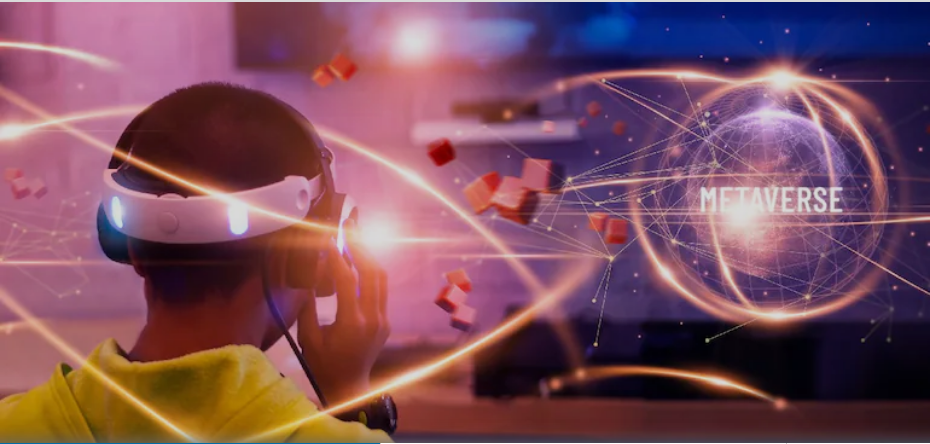
Whatsapp 93125-11015 For Details


Context:
· As the global economy continues to tank below expectations due to rising inflation, many countries are banking on emerging technologies such as Non-Fungible Tokens (NFTs), and metaverse to recover from the rampant falling economy.
Details:
·
Shanghai, the
second-most populated city in China, is relying on Web3, metaverse, and NFTs as an
integral part of its five-year economic
recovery plan, and India has a lot to learn from this.
·
The
‘Shanghai Plan’ comes following a two-month lockdown enforced by city
authorities in compliance with the country’s zero-COVID-19 policy.
· Notably, Shanghai’s GDP growth rate had already dropped by 13.7 percent in the second quarter of 2021, and the city is positive that blockchain can help.
The
Shanghai Model:
·
The
municipality of Shanghai released a draft paper of its 14th Five-Year Plan for the ‘Development of Shanghai’s Digital Economy’
recently. Some of the options that are currently being explored by the city are
the integration of metaverse into
tourism.
·
The
city wants a digital art-themed event to
promote related NFTs during the Shanghai International Artwork Trade Week.
·
Additionally,
the plan suggests several actions, such as the creation of virtual enterprises, the use of virtual reality in education, and the incorporation of
technology into tourism and entertainment, to name a few.
· In short, Shanghai will explore fashion, retail, entertainment, travel, and all the uses of metaverse to create what will be the future of online commerce, which is also known as ‘Experiential Commerce’.
Chain-owner
enterprises:
· The draft paper suggests some programmes that the government vows to promote which include government-directed funds to create 10 ‘leading’ companies as chain-owner enterprises. These companies will compete in the international market.
· Around 100 smaller firms will master core metaverse technology. These companies will focus on accelerating research and deployment of the metaverse platform, emphasising virtual concerts, idols, sports, and other digital entertainment options.
Web3:
·
A
$52 billion metaverse cluster expansion
in the city is one of the key objectives of the plan. Shanghai aims to
allot a $1.4 billion fund to reach that goal.
·
Web3
is the driving factor of the metaverse. It is the third generation of the
Internet free from the power of tech companies such as Amazon, Facebook, and
Google. It is a decentralised space fuelled by the power of blockchain where no
central authority controls the flow of information.
· To put it simply, Web3 is more about blockchain concepts such as decentralised applications, smart contracts, and digital identity.
Metaverse
vs Web3:
·
The metaverse should not
be confused with Web3.
It refers to a virtual reality-based Internet world where users can interact
with each other in a 3D space.
·
The
next generation of buyers will want richer and more immersive online purchase
experiences. Given this, there is a huge potential in this space.
· For Web3 to work it would require infrastructure such as access equipment, virtual reality headsets, augmented reality glasses, chips, cloud computing, 5G tech, decentralised finances (DeFi), and NFTs. Most importantly it would require people’s digital identity in the form of avatars.
Learning
for India:
·
With
countries such as South Korea stepping
on the Web3 space, as a part of the ‘Digital
New Deal’, the country is planning to invest $177 million into projects
related to the metaverse.
·
West Asia is not behind
as well.
Dubai is taking proactive steps to prepare its government for the metaverse
embracing Web3 and blockchain.
·
Digital
economies are driven by people who are well-versed in future technologies such
as AI, ML, VR, AR, and blockchain.
An entrepreneur in this space wants a business-friendly ecosystem and
environment to build, and succeed. People with knowledge and experience in
these technologies will also want job opportunities in the space.
·
The
Indian government needs to build a
support framework that enables startup entrepreneurs to work freely in this
space. This is possible by strengthening cutting-edge technological
breakthroughs by providing a better environment for talent to stay and work in
India.
· Formulating a long-term plan is important to ensure that not only the businesses in the space build and thrive, but also bring revenue to the country. Ultimately, new tech zones need to be created and promoted to encourage new technology R&D.
Way
Forward:
·
It
is high time for India which has both resources and consumers became a hub for
Web3, and this is possible with the combined effort from the government and
industry.
This will help India from not just being the digital back-office of the world to becoming a metaverse product-centric country.